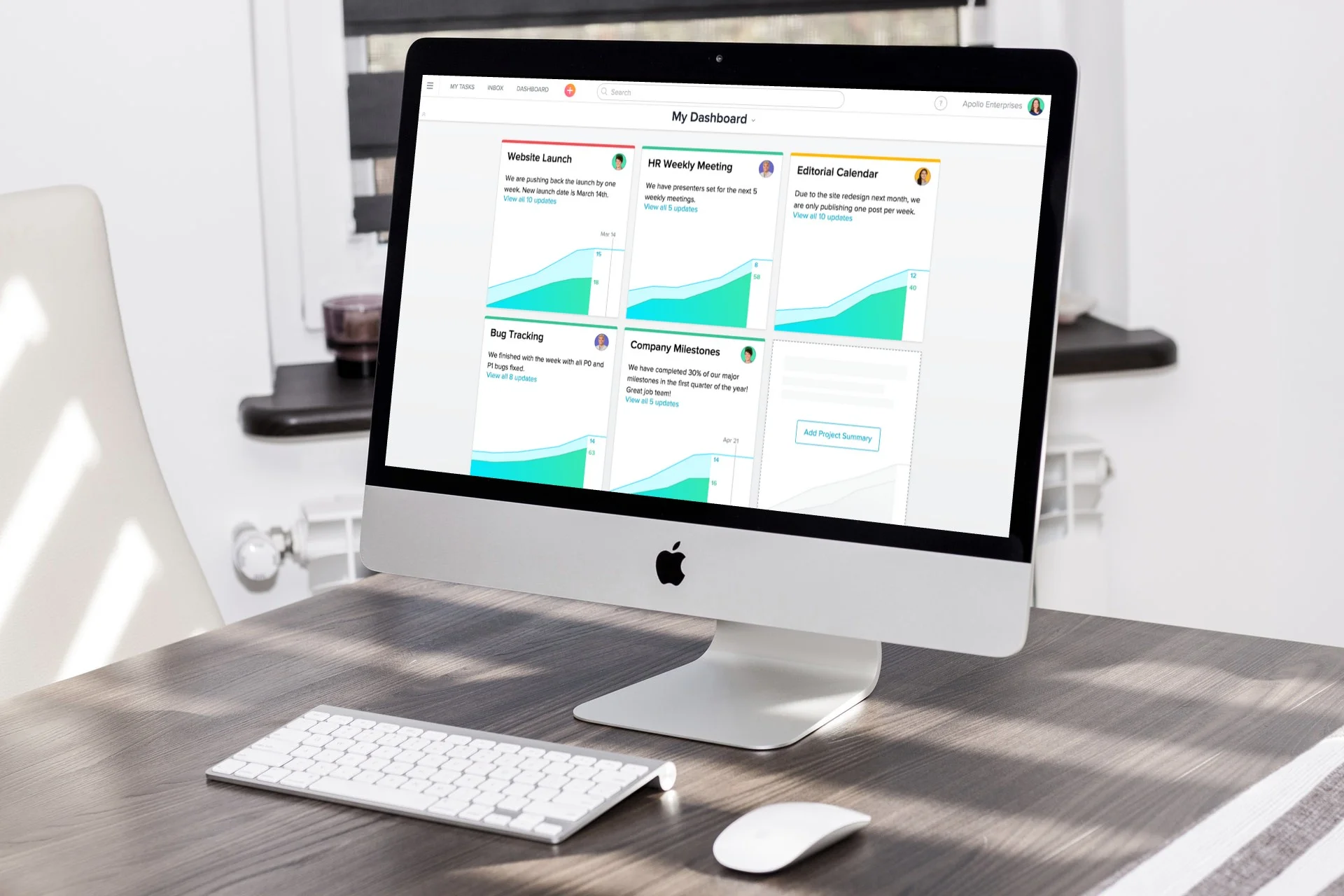Asana provides a simple and powerful way for teams to manage their work. We provide consulting and training services to help you get the most out of Asana.
Asana is a web-based project manager that helps keep you and your team on the same page. Asana can be used to keep track of tasks, projects and conversations and help ensure that nothing falls through the cracks.
Asana can be used for simple team projects and is up to the tasks of dealing with complex workflows. We'll help your configure Asana in a way that makes sense for your organization and will make sure that you and your team is up to speed on Asana's features and excited about using Asana.
Are you NEW to Asana? You can create a free account and use it to manage teams of up to 10 people.
Target Audience for Asana
Asana can work well for teams of all sizes. Solopreneurs use Asana to work with clients and contractors and large companies use Asana to manage a wide range of different project types. In our experience, Asana is a good choice for teams that have an aptitude for technology and who appreciate the flexibility of viewing projects as lists, boards, timelines, and calendars.
Asana = Ease + Efficiency
Reducing Dependency on email
Many teams rely on email for internal communication and project management. This is inherently inefficient and it's all too easy for important details to slip through the cracks.
In our experience, it's much more efficient to track information and requests using Asana. Asana tasks assigned to a specific person replace requests made by email (or at the water cooler). Tasks and projects can be linked to documents, so you'll always have the relevant information at your fingertips. And discussions about specific projects and task can take place using Asana's built-in comments feature.
Asana Plays Well with Others
Asana has built-in integration with numerous other apps and services, including Adobe Creative Cloud, Google Drive, Gmail, Microsoft Outlook, Microsoft Teams, Slack and Salesforce. Asana also has excellent support for Zapier, making it possible to created automated workflows that include Asana and hundreds of other apps.
Our Expertise
Technically Simple Founder, Tim Stringer is also an Asana Services Partner. He's helped teams spanning a wide variety of industries use Asana effectively. Asana is also the project management tool that we use to manage our team at Technically Simple.
Our Asana Consulting & Training Process
STAGE 1: System Design & Configuration
If you're brand new to Asana, we'll help you get your system up and running. We'll spend some time learning about your processes and sales/project cycles and will work with you to configure Asana in a way that makes sense for your organization.
If you're already using Asana, we'll perform a review of your setup and make specific recommendations for improvements. We'll also work with you to formulate a strategy for implementing these improvements.
Either way, as we walk through the configuration process you'll learn more about Asana's features and best practices.
This stage typically takes place over one or two sessions totalling 3-6 hours, depending on the complexity of the setup. To help keep things focused, it's best just to have one or two people from your team in attendance at these sessions.
STAGE 2: BASIC TRAINING
For Asana to be an effective solution, it's important that everyone who's using it have at least a basic understanding of Asana's features and of how Asana has been configured for your organization.
It's recommended that everyone in your organization who will be using Asana attend the Basic Training session(s). In addition to learning how to use Asana effectively, they'll be educated on Asana's benefits and will gain an appreciation of how Asana will make their work easier and more efficient.
This stage typically consists of one or two training sessions ranging in length from 90 minutes to two hours. Sessions can be recorded for internal use.
STAGE 3: ADVANCED TRAINING
At least some people within your organization will need a more advanced understanding of Asana. This could include people who are using the Asana extensively and those who are assuming the role of system administrator.
Advanced Training picks up where Basic Training left off, delving into more advanced topics such as advanced searches and how to integrate with other apps using Asana's built-in integrations and Zapier.
This stage typically consists of one or two training sessions ranging in length from 90 minutes to two hours. Sessions can be recorded for internal use.
System Reviews
We recommend a periodic review of your Asana system. This includes identifying any gaps or inconsistencies in the data and formulating ways to make Asana event more convenient and efficient.
System Reviews are also a good opportunity for Asana Administrators to learn about new features in Asana and to get our help adding new processes and workflows to Asana.
System Reviews typically take 1-3 hours. It's recommend that you have a system review about 3 months after starting to use Asana, and then at least once a year moving forward.
Technical Support
Please note that we don't provide ad hoc technical support. Instead, we recommend visiting Asana Support, where you'll find an extensive library of support articles and instructions on how to contact their Support Team.
Platform & Rate
We provide Asana consulting and training to organizations large and small all over the world using Zoom.
The initial Discovery Session is billed on an hourly basis. Please see our Platform & Rates page for more information. After this initial session we typically provide a fixed-cost proposal for additional consulting and training.
Contact Us
If you're interested in our Asana Consulting & Training services, please take a moment to complete the following form and we'll be in touch.




